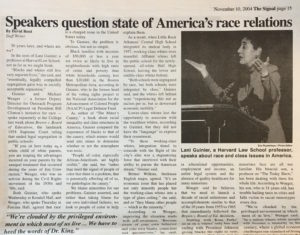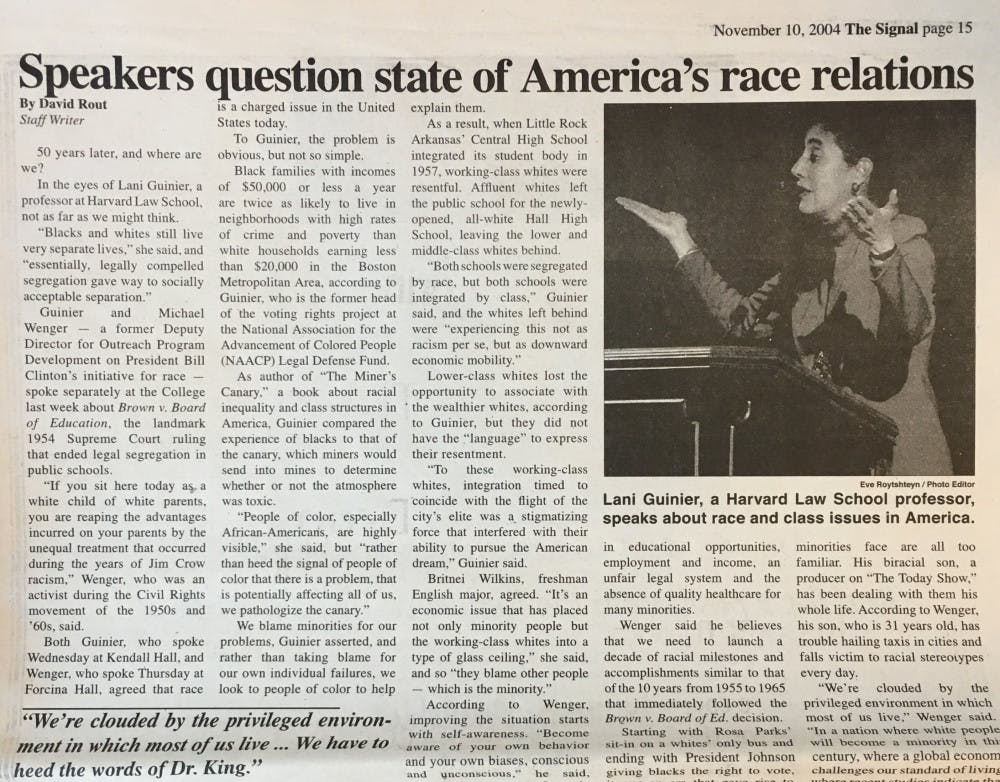Every week, Features Editor Alyssa Gautieri hits the archives and finds old Signals that relate to current College topics and top stories.

Every year, the College’s Black Student Union hosts a multitude of events during February to celebrate Black History Month. As the month concludes, it is important to recognize that issues of race at the College have long been discussed. For decades, the College has welcomed guest speakers, faculty and students to talk about racism and racial bias. These events, such as the one that took place in 2004, seek to promote open-mindedness and change.
50 years later, and where are we?
In the eyes of Lani Guinier, a professor at Harvard Law School, not as far as we might think.
“Blacks and whites still live very separate lives,” she said, and “essentially, legally compelled segregation gave way to socially acceptable separation.”
Guinier and Michael Wenger — a former Deputy Director for Outreach Program Development on President Bill Clinton’s initiative for race — spoke separately at the College last week about Brown v. Board of Education, the landmark 1954 Supreme Court ruling that ended legal segregation in public schools.
“If you sit here today as a white child of white parents, you are reaping the advantages incurred on your parents by the unequal treatment that occurred during the years of Jim Crow racism,” Wenger, who was an activist during the Civil Rights movement of the 1950s and ’60s, said.
Both Guinier, who spoke Wednesday at Kendall Hall, and Wenger, who spoke Thursday at Forcina Hall, agreed that race is a charged issue in the United States today.
To Guinier, the problem is obvious, but not so simple.
We blame minorities for our problems, Guinier asserted, and rather than taking blame for our own individual failures, we look to people of color to help explain them.
Britnei Wilkins, freshman English major, agreed. “It’s an economic issue that has placed not only minority people but the working-class whites into a type of glass ceiling,” she said, and so “they blame other people — which is the minority.”
According to Wenger, improving the situation starts with self-awareness.
“Become aware of your own behavior and your own biases, conscious and unconscious,” he said, encouraging a crowd of mostly students to “identify ways of channeling your energies in constructive ways to narrow our division.”
For Wenger, the problems minorities face are all too familiar.
“We have to heed the words of Dr. King,” he said. “We cannot rest.”







